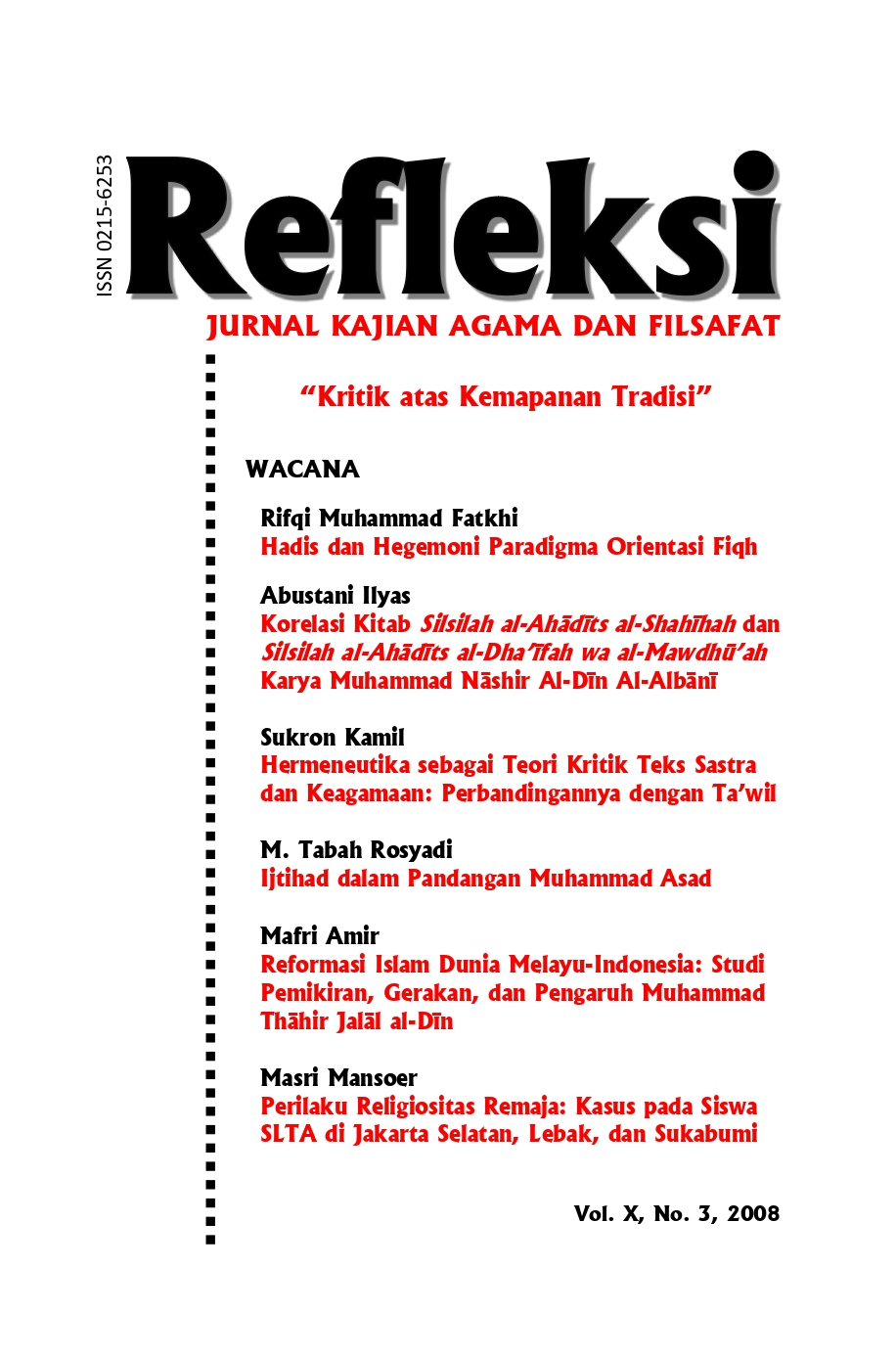Ijtihad dalam Pandangan Muhammad Asad
DOI:
https://doi.org/10.15408/ref.v10i3.40095Keywords:
Ijtihad, Reason, Returning to the Qur’an and Sunnah.Abstract
This article explains that an finding the truth of law, besides using textual method of al-Qur’an and Sunnah, Asad hence rational method (ijtihādī). Asad also a firm hold the contextual method According to his interpretation, Islam is intellectual movement, because Islam have peeped out the definitive idea and clear agenda. Asad really trusts in the mind as method to look for the truth. He expresses that even to choose the religion, people have to be guided by their mind, and with that mind people will be able to know how far the religion can fulfill the human being requirement, physical or spiritual.References
‘Abduh, Muhammad. Al-Islām wa al-Nashraniah Ma’a al-‘Ilm wa al-Madaniah, Kairo: Dar al-Manar, 1373 H.
‘Abduh, Muhammad. Risālah al-Tauḥid, Kairo: Dar al-Manar, 1366 H.
Ahmad, Aziz. Islamic Modernism in India and Pakistan, London: Oxford University Press, tt.
Asad, Muhammad. Islamic Constitution Making, Punjab: Arafat Publications, 1947.
Asad, Muhammad. Islam at the Crossroads, Gilbraltar: Dar al-Andalus Limited, 1987.
Asad, Muhammad. The Principles of State and Government in Islam, California: University of California Press, 1961; Kuala Lumpur: Islamic Book Trust, 2000.
Bagir, Haidar dan Basri, Syafiq (ed.), Ijtihad dalam Sorotan, Bandung: Mizan, 1988.
Makram, Ibn Manzhur Abi al-Fadlal bin. Lisān al-’Arab, Beirut: Dar al-Shadir, tt.
Nasution, Harun. Pembaharuan dalam Islam, Sejarah Pemikiran dan Gerakan, Jakarta: Bulan Bintang, 1987.
Nasution, Harun. Muhammad Abduh dan Teologi Rasional Mu’tazilah, Jakarta: Penerbit Universitas Indonesia, 1987.








